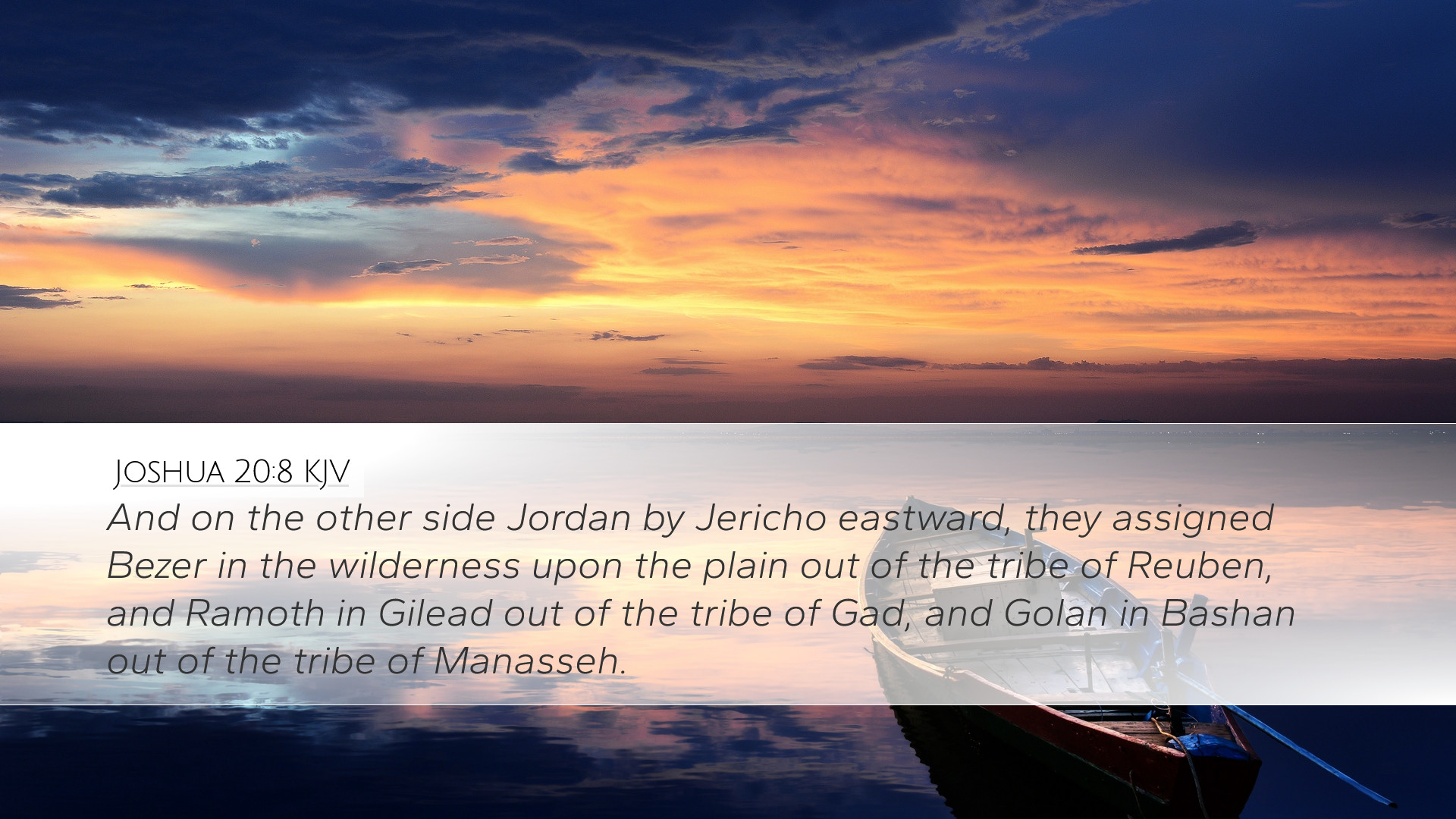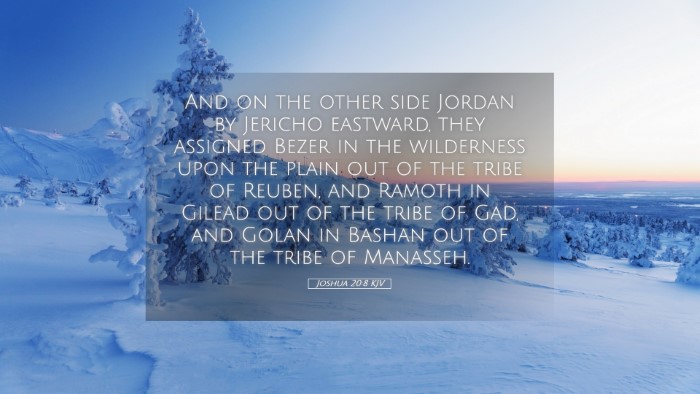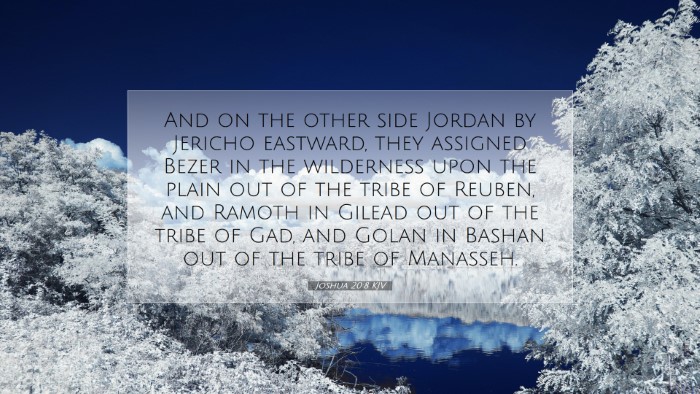Old Testament
Genesis Exodus Leviticus Numbers Deuteronomy Joshua Judges Ruth 1 Samuel 2 Samuel 1 Kings 2 Kings 1 Chronicles 2 Chronicles Ezra Nehemiah Esther Job Psalms Proverbs Ecclesiastes Song of Solomon Isaiah Jeremiah Lamentations Ezekiel Daniel Hosea Joel Amos Obadiah Jonah Micah Nahum Habakkuk Zephaniah Haggai Zechariah MalachiJoshua 20:8
Joshua 20:8 KJV
And on the other side Jordan by Jericho eastward, they assigned Bezer in the wilderness upon the plain out of the tribe of Reuben, and Ramoth in Gilead out of the tribe of Gad, and Golan in Bashan out of the tribe of Manasseh.
Joshua 20:8 Bible Commentary
Commentary on Joshua 20:8
Text of Joshua 20:8: "And on the other side Jordan, by Jericho eastward, they assigned Bezer in the wilderness, and the plain country, and Golan in Bashan." (KJV)
Introduction
The passage of Joshua 20:8 is nestled within a broader context concerning the establishment of cities of refuge for those who unintentionally committed manslaughter. This critical aspect of Israelite law underscores God’s provision for justice and mercy. Commentaries from renowned theologians such as Matthew Henry, Albert Barnes, and Adam Clarke enhance our understanding of these cities and their significance.
The Cities of Refuge
The cities of refuge are vital to the narrative, serving as a divine mechanism intended to protect individuals from avenging family members while ensuring that justice is maintained.
- Matthew Henry's Perspective: Henry emphasizes the importance of these cities as places of sanctuary, signifying God's mercy. He notes that the cities provided physical safety as well as spiritual refuge.
- Adam Clarke's Insights: Clarke elaborates on the theological implications. He suggests that these cities not only reflect God's justice but also foreshadow the ultimate refuge found in Christ, who offers salvation to all who seek it.
- Albert Barnes Observations: Barnes highlights the plea for justice intertwined with mercy, noting that it exemplified a balance intended to ensure righteousness among the people of Israel.
The Significance of Bezer and Golan
Bezer and Golan, as designated cities of refuge, represent God's deliberate choice in providing safe havens. This geographical allocation implies a divine strategy in the land distribution.
- Bezer: Located in the wilderness and symbolizing a place of isolation, Bezer serves as a reminder of the separation from guilt and the provision of safety amid danger.
- Golan: Positioned in Bashan, Golan signifies strength and stability. It stands as a testament to the divine favor resting upon the land and people of Israel.
Theological Implications
At the core of the passage lies a rich tapestry of theological themes:
- Mercy and Justice: The cities of refuge are a profound illustration of how God's laws embody both mercy and justice. A murderer was not given free rein; the refuge was only available under specific circumstances, emphasizing a divine legal framework.
- Divine Protection: The assignment of specific cities indicates God’s attentiveness to human needs. Those fleeing for their lives could find solace knowing that God established these shelters.
- Foreshadowing of Christ: The cities serve as a precursor to Christ as our refuge. Just as those in ancient Israel escaped to these cities, believers today find protection and forgiveness in Jesus.
Conclusion
In conclusion, Joshua 20:8 and its surrounding context provide a profound exploration of God’s provision of cities of refuge. The insights given by Matthew Henry, Albert Barnes, and Adam Clarke reveal the intricate relationship between justice and mercy in God's plan, as well as foreshadowing the greater refuge found in Christ. Understanding these cities helps deepen the appreciation for God's justice and mercy, enriching theological understandings for pastors, students, and scholars alike.


